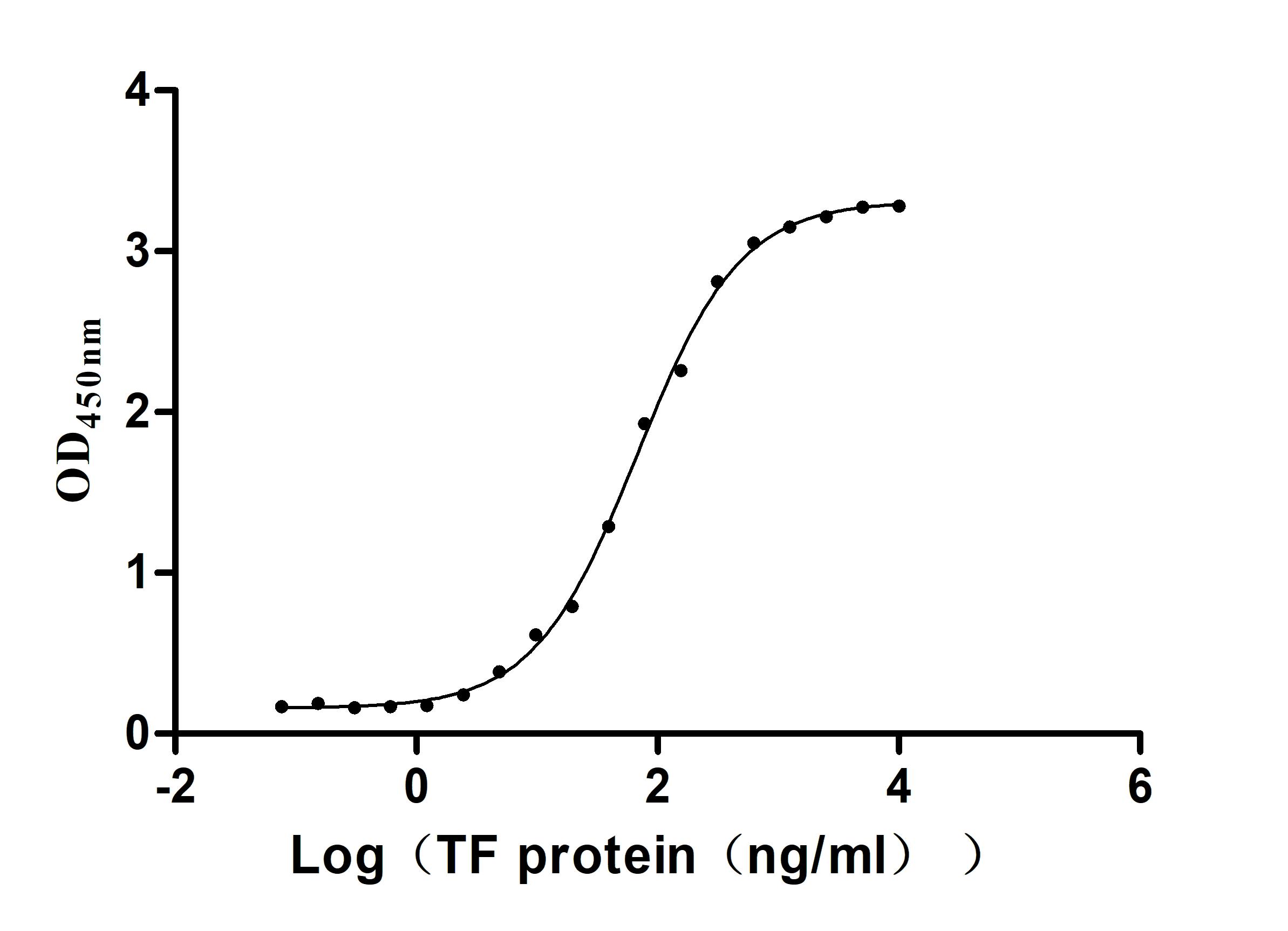Recombinant Human Secretoglobin family 3A member 1 (SCGB3A1)
-
中文名称:人SCGB3A1重组蛋白
-
货号:CSB-YP853489HU
-
规格:
-
来源:Yeast
-
其他:
-
中文名称:人SCGB3A1重组蛋白
-
货号:CSB-EP853489HU
-
规格:
-
来源:E.coli
-
其他:
-
中文名称:人SCGB3A1重组蛋白
-
货号:CSB-EP853489HU-B
-
规格:
-
来源:E.coli
-
共轭:Avi-tag Biotinylated
E. coli biotin ligase (BirA) is highly specific in covalently attaching biotin to the 15 amino acid AviTag peptide. This recombinant protein was biotinylated in vivo by AviTag-BirA technology, which method is BriA catalyzes amide linkage between the biotin and the specific lysine of the AviTag.
-
其他:
-
中文名称:人SCGB3A1重组蛋白
-
货号:CSB-BP853489HU
-
规格:
-
来源:Baculovirus
-
其他:
-
中文名称:人SCGB3A1重组蛋白
-
货号:CSB-MP853489HU
-
规格:
-
来源:Mammalian cell
-
其他:
产品详情
-
纯度:>85% (SDS-PAGE)
-
基因名:SCGB3A1
-
Uniprot No.:
-
别名:Cytokine high in normal 1; Cytokine HIN-1; Cytokine HIN1; High in normal 1; HIN 1; HIN1; LU105; MGC87867; Pneumo secretory protein 2; PNSP 2; PnSP-2; PNSP2; Scgb3a1; Secretoglobin family 3A member 1; Secretoglobin family 3A member 1 precursor ; Secretoglobin; family 3A; member 1; SG3A1_HUMAN; UGRP2; Uteroglobin related protein 2; Uteroglobin-related protein 2
-
种属:Homo sapiens (Human)
-
蛋白长度:full length protein
-
表达区域:21-104
-
氨基酸序列FLVGSAKPVA QPVAALESAA EAGAGTLANP LGTLNPLKLL LSSLGIPVNH LIEGSQKCVA ELGPQAVGAV KALKALLGAL TVFG
-
蛋白标签:Tag type will be determined during the manufacturing process.
The tag type will be determined during production process. If you have specified tag type, please tell us and we will develop the specified tag preferentially. -
产品提供形式:Lyophilized powder
Note: We will preferentially ship the format that we have in stock, however, if you have any special requirement for the format, please remark your requirement when placing the order, we will prepare according to your demand. -
复溶:We recommend that this vial be briefly centrifuged prior to opening to bring the contents to the bottom. Please reconstitute protein in deionized sterile water to a concentration of 0.1-1.0 mg/mL.We recommend to add 5-50% of glycerol (final concentration) and aliquot for long-term storage at -20℃/-80℃. Our default final concentration of glycerol is 50%. Customers could use it as reference.
-
储存条件:Store at -20°C/-80°C upon receipt, aliquoting is necessary for mutiple use. Avoid repeated freeze-thaw cycles.
-
保质期:The shelf life is related to many factors, storage state, buffer ingredients, storage temperature and the stability of the protein itself.
Generally, the shelf life of liquid form is 6 months at -20°C/-80°C. The shelf life of lyophilized form is 12 months at -20°C/-80°C. -
货期:Delivery time may differ from different purchasing way or location, please kindly consult your local distributors for specific delivery time.Note: All of our proteins are default shipped with normal blue ice packs, if you request to ship with dry ice, please communicate with us in advance and extra fees will be charged.
-
注意事项:Repeated freezing and thawing is not recommended. Store working aliquots at 4°C for up to one week.
-
Datasheet :Please contact us to get it.
靶点详情
-
功能:Secreted cytokine-like protein. Inhibits cell growth in vitro.
-
基因功能参考文献:
- The role of high in normal-1 (HIN-1) as a potential biomarker in combating glioblastoma is being described for the first time in this study. PMID: 25752997
- Tumor-adjacent tissues showed higher methylation status of RASSF1A, HIN-1 and MGMT promoters. PMID: 26370119
- SCGB3A1-183 T and SCGB3A1 IVS1-189 A alleles might have a protective effect against nasal polyposis. PMID: 24710847
- aberrant HIN-1 promoter methylation could be an independent and important biomarker used in predicting the prognosis and progression of breast cancer PMID: 24850174
- Methylation of HIN-1 promoter is a novel epigenetic biomarker associated with poor outcomes in OCCA patients. PMID: 22871047
- Methylation of HIN-1, RASSF1A, RIL and CDH13 in breast cancers was associated with clinical characteristics, but only RASSF1A methylation was associated with time to first recurrence and overall survival. PMID: 22695491
- HIN1, was the most "dietary sensitive" genes, as methylation of their promoters was associated with intakes of at least two out of the eight dietary methyl factors examined. PMID: 22048254
- analysis of AKT signaling pathway activated by HIN-1 methylation in non-small cell lung cancer PMID: 22095135
- Data suggest that high methylation of the HIN-1 promoter results in silenced HIN-1 expression in gastric cancer, and that 5-aza-2'-deoxycytidine reverses HIN-1 methylation and reduces viability of gastric cancer cells. PMID: 21274384
- The methylation levels and frequencies of HIN1, RASSF1A and TWIST, and average MR were significantly lower in basal-like subtype compared to luminal or human epithelial growth factor receptor-2 subtype. PMID: 20505321
- Hypermethylation of HIN-1 is associated with lymphatic metastasis of breast cancers. PMID: 20642860
- HIN-1, RAR-beta, RASSF1A, and Twist had the ability to distinguish high-grade squamous intraepithelial lesions/squamous cell carcinomas from low-grade squamous intraepithelial lesions/negative cervical scrapings PMID: 20496080
- Sporadic breast tumors with a "BRCA1-like" histopathological phenotype also demonstrated significantly lower frequency of HIN-1 promoter methylation. PMID: 12727813
- hypermethylated in invasive and in in situ lobular breast cancer PMID: 14601057
- Lack of HIN-1 methylation defines specific breast tumor subtypes including medullary carcinoma of the breast and BRCA1-linked tumors PMID: 14614327
- high in normal-1 (HIN-1) is downregulated in stage I non-small cell lung cancer PMID: 14977834
- silencing of HIN-1 expression and methylation of its promoter occurs in multiple human cancer types, suggesting that elimination of HIN-1 function may contribute to several forms of epithelial tumorigenesis PMID: 15383627
- Aberrant methylation of HIN-1 is a frequent event in many human malignancies PMID: 15472908
- Studies provide further evidence that HIN-1 possesses tumor suppressor functions, and that these activities may be mediated through the AKT signaling pathway. PMID: 16266985
- CASP8, DCR2, and HIN-1 methylation leads to progression of neuroblastoma PMID: 17545522
- DNA hypermethylation of tumour suppressor genes seems to play an important role in ovarian carcinogenesis and HOXA9, HOXB5, SCGB3A1, and CRABP1 are identified as novel hypermethylated target genes in this tumour type PMID: 17623056
- HIN-1 was strongly associated with breast cytologic atypia. HIN-1 methylation increased rapidly between ages 32 and 40. PMID: 18483325
- HIN-1 silencing is associated with dense promoter region hypermethylation in esophageal cancer and suggest that methylation of HIN-1 is an early event in dysplastic transformation. PMID: 19098448
- The combination of RARB M4, INK4a/ARF, PRB, and HIN-1 CpG island promoter methylation may predict non-BRCA1/2-associated mammary carcinogenesis and tumor progression. PMID: 19258476
- Results show that cumulative RASSF1A, TWIST1, and HIN1 gene methylation accurately distinguished ducts with cancerous versus benign lesions. PMID: 19470737
- The epigenetic silencing of tumor suppressor genes involved in the Ras/PI3K/AKT pathway plays an important role in oral squamous cell carcinoma radioresistance PMID: 19509163
显示更多
收起更多
-
亚细胞定位:Secreted.
-
蛋白家族:Secretoglobin family, UGRP subfamily
-
组织特异性:Highly expressed in lung and prostate. Also found in mammary gland, spleen, pancreas, testis and liver. Detected throughout the airway epithelium in lung, with highest expression in large airways. Found in lung submucosal glands where it localizes to acin
-
数据库链接:
HGNC: 18384
OMIM: 606500
KEGG: hsa:92304
STRING: 9606.ENSP00000292641
UniGene: Hs.62492
Most popular with customers
-
Recombinant Human Lymphotoxin-alpha (LTA) (Active)
Express system: Mammalian cell
Species: Homo sapiens (Human)
-
Recombinant Human Tumor necrosis factor ligand superfamily member 8 (TNFSF8), partial (Active)
Express system: Mammalian cell
Species: Homo sapiens (Human)
-
Recombinant Human Delta-like protein 3 (DLL3), partial (Active)
Express system: Mammalian cell
Species: Homo sapiens (Human)
-
Recombinant Human Cytokine receptor common subunit beta (CSF2RB), partial (Active)
Express system: Mammalian cell
Species: Homo sapiens (Human)
-
Recombinant Human Signal transducer CD24 (CD24)-Nanoparticle (Active)
Express system: Mammalian cell
Species: Homo sapiens (Human)
-
Recombinant Human Claudin-6 (CLDN6)-VLPs, Fluorescent (Active)
Express system: Mammalian cell
Species: Homo sapiens (Human)
-
Recombinant Human Serotransferrin(TF) (Active)
Express system: Mammalian cell
Species: Homo sapiens (Human)
-
Recombinant Human Myosin regulatory light chain 12A (MYL12A) (Active)
Express system: E.coli
Species: Homo sapiens (Human)


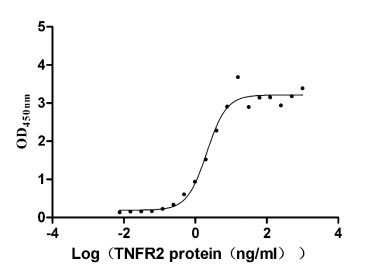
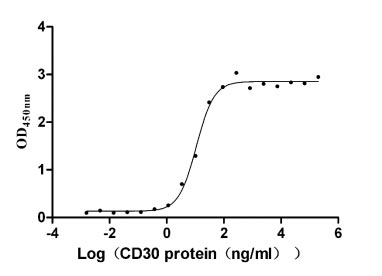
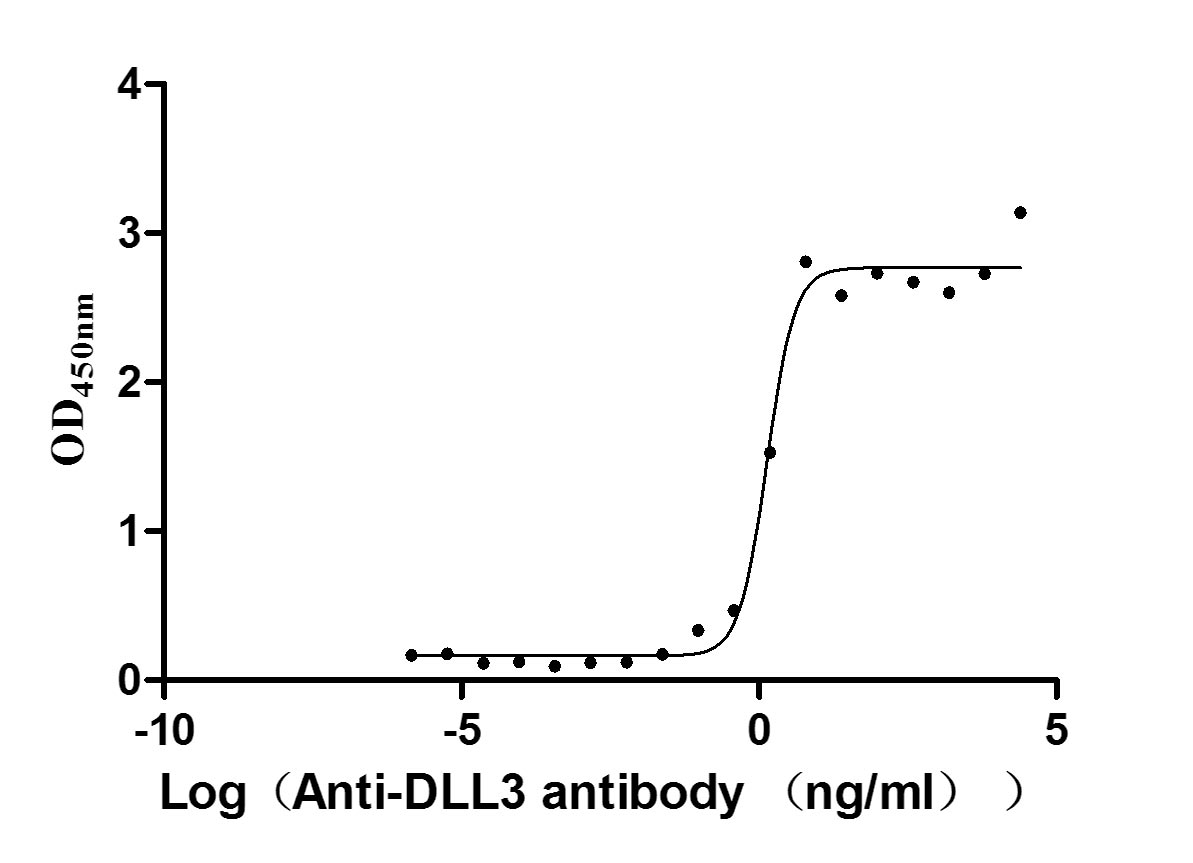
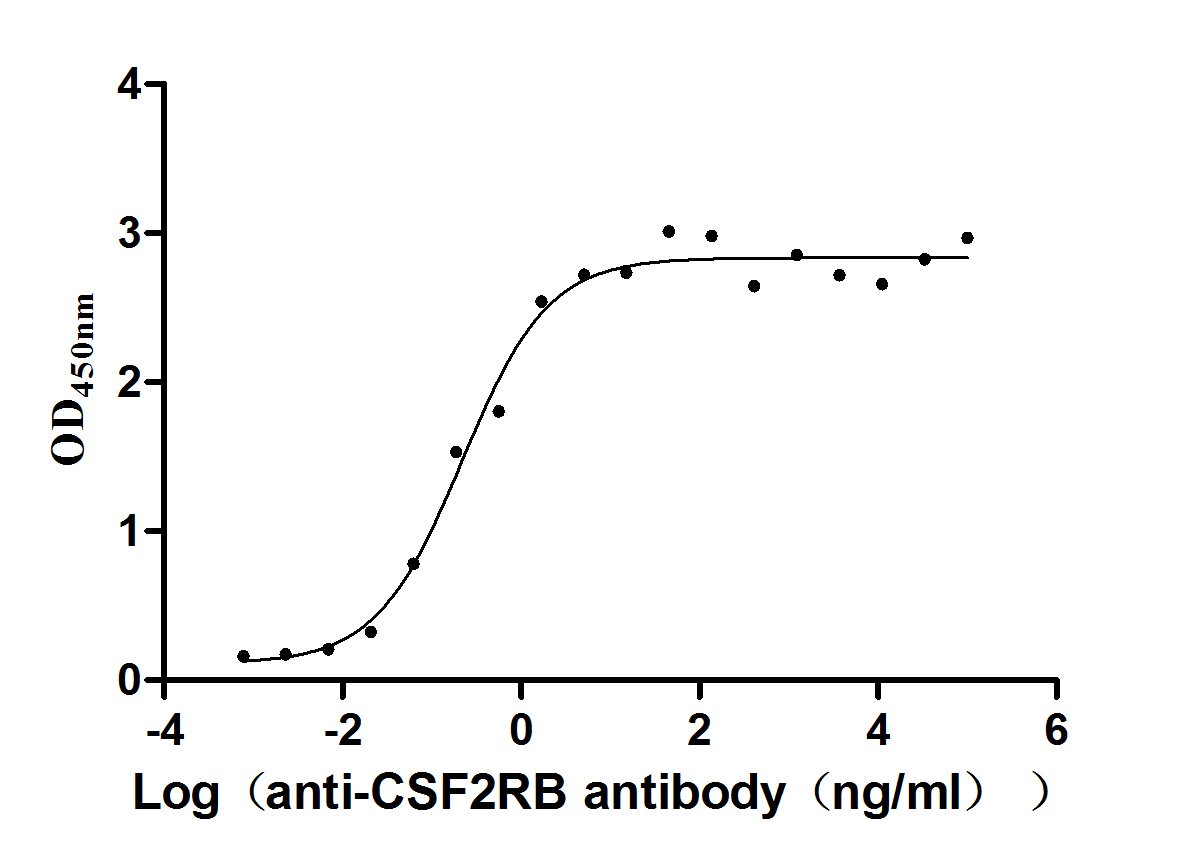
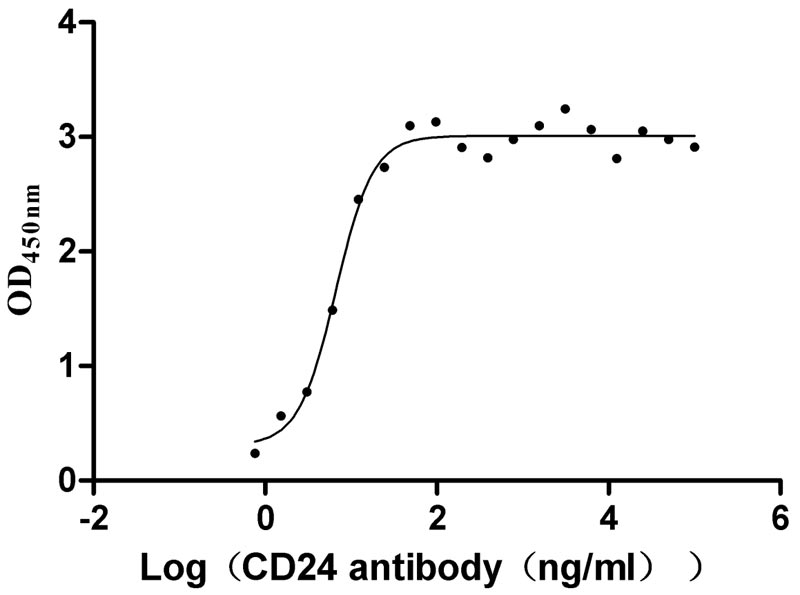
f4-AC1.jpg)
